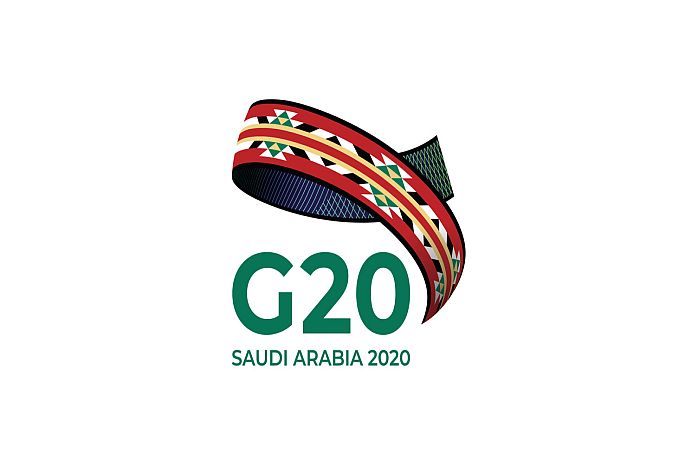By Caribbean News Global ![]()
USA/EUROPE – International Monetary Fund (IMF) managing director Kristalina Georgieva during the meeting of the G20 leaders’ summit hosted by Saudi Arabia on 21-22 November 2020 commended the G20 countries as a whole for taking unprecedented actions to mitigate the impact of COVID-19, including fiscal and monetary measures, that have helped to prevent massive bankruptcies and an even deeper crisis.
“The Debt Service Suspension Initiative, in particular, gave many poor countries much needed temporary ‘breathing space’. The Common Framework for Debt Treatments beyond the DSSI, endorsed by G20 Leaders at this meeting, will allow low-income countries with unsustainable debts to apply for permanent debt relief on a case-by-case basis, with a level playing field for creditors. It is critical to operationalize this Framework promptly and effectively. Going forward, we must also help those countries not covered by the Framework to address debt vulnerabilities so that their economies can become more resilient.”
Cooperation is going to be even more important going forward on three priority fronts:
- First, end the health crisis. With vaccines on the horizon, we must ensure they reach everyone, everywhere. If we do this, the Fund estimates that it could add almost US$ 9 trillion to global income by 2025. There could be no better value for money—or for the world.
- Second, reinforce the economic bridge to recovery.It is essential to sustain support to businesses and workers until we exit the health crisis—there must be no premature withdrawal. It is also time now to prepare for a synchronized green and digital infrastructure investment push to invigorate growth, to limit scarring, and address climate goals. If G20 countries act together, they can achieve two-thirds more at the same cost than if each country acts alone.
- Third, build the foundations of a better 21st Century global economy.The most consequential uncertainty facing us today is how we can use the momentum of disruption caused by this crisis to build a better economy for all: revitalize the international trading system, foster an international system of taxation where everyone pays their fair share, and accelerate the transition to the new climate economy on which the health and prosperity of our children depends.
“Finally, we must not forget the world beyond the G20: the poorest countries that are least equipped to withstand shocks. The IMF will continue to count on the G20’s support to have all the necessary resources to best serve our member countries, and especially those who need our assistance the most.”
President of the European Council, Charles Michel, and president of the European Commission, Ursula von der Leyen represented the EU.
President Michel said: “An international Treaty on Pandemics could help prevent future pandemics and help us respond more quickly and in a more coordinated manner. It should be negotiated with all nations, UN organizations and agencies, in particular the World Health Organisation (WHO). The WHO must remain the cornerstone of global coordination against health emergencies. A Treaty on Pandemics could complement its efforts.”
Paving the way for an inclusive, sustainable and resilient future, president von der Leyen said: “I am glad that G20 leaders agreed to make COVID-19 vaccines available and affordable for all. But more funding is needed. This is why I called G20 Leaders to commit to fund 4.5 billion US dollars for the ACT-Accelerator by the end of the year. G20 leaders also agreed to maintain economic measures until the recovery is firmly on the way. As a lesson from the crisis we need to step up global preparedness. We will discuss this again in May 2021 at the joint G20 Global Health Summit in Italy. To build back a more sustainable, inclusive and resilient world we also need to step up actions to fight climate change. The EU leads the way to climate neutrality by 2050 and many G20 partners now have taken the same commitments.”
Following the summit, leaders adopted the G20 Riyadh declaration to address common global challenges:
On COVID-19, the EU championed a multilateral solution to the coronavirus pandemic. EU leaders called on the G20 to uphold and deepen its commitment to fight the COVID-19 crisis, notably by ensuring the affordable and equitable access for all people of diagnostics, therapeutics and vaccines. The Access to COVID-19 Tools Accelerator (ACT-A) initiative and its COVAX facility are the main tools to do so.
On climate change, the Summit agreed on a unified paragraph in the G20 Riyadh Declaration, after three consecutive G20 Summits where such consensus could not be reached. EU leaders urged all G20 members to work towards the full and effective implementation of the Paris Agreement. The EU also promoted a recovery based on green, inclusive, sustainable, resilient and digital growth in line with the 2030 Agenda and its Sustainable Development Goals.
On debt relief for the most fragile countries, Leaders reconfirmed their support through the G20 Debt Service Suspension Initiative that will provide debt relief and free resources to fight the pandemic. They committed to implementing the Debt Service Suspension Initiative (DSSI) including its extension through June 2021. EU leaders stressed that additional steps might be needed, and the Summit endorsed a common multilateral framework for further debt treatments.
On trade and taxation of the digital economy, Leaders recalled their support to the WTO reform process in the lead up to the 12th WTO Ministerial Conference and recognized the contribution that the Riyadh Initiative on the Future of the WTO has made. They also agreed to strive to find a consensus-based solution for a globally fair, sustainable, and modern international tax system by mid-2021, built on the ongoing work of the Organisation for Economic Co-operation and Development (OECD).





